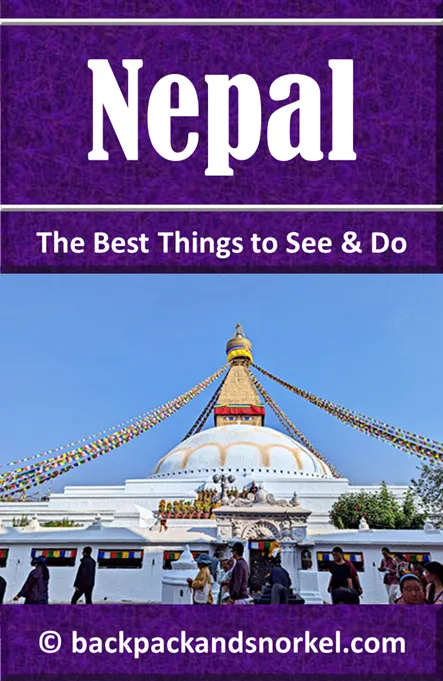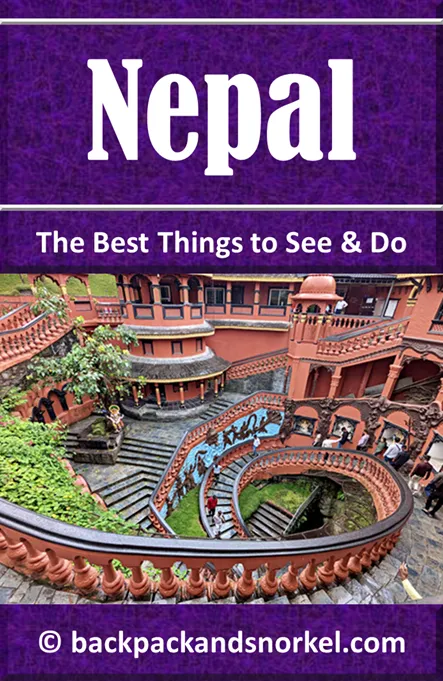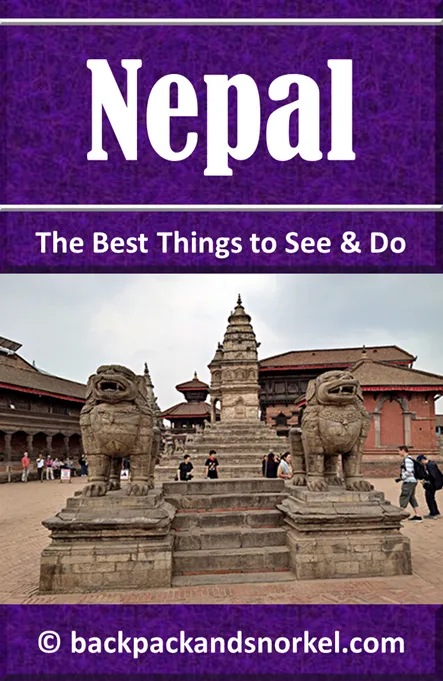Mahabouddha Temple: Your Guide to Patan's Unique Brick Temple - Nepal Purple Travel Guide
(map, reviews)
This is Premium Content! To access it, please download our
Backpack and Snorkel Purple Travel GuideMahabouddha Temple, often referred to as the ‘Temple of a Thousand Buddhas’, is a Buddhist temple that is absolutely worth a visit.
We have read that there is an admission fee of Rs50 per person that enables you to also visit nearby Oku Bahal Rudra Varna Mahavihar, but we have not seen anyone charging the fee.
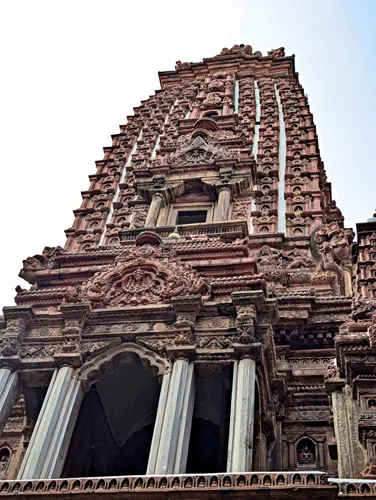
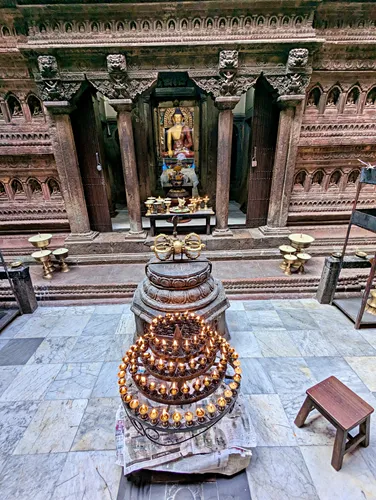
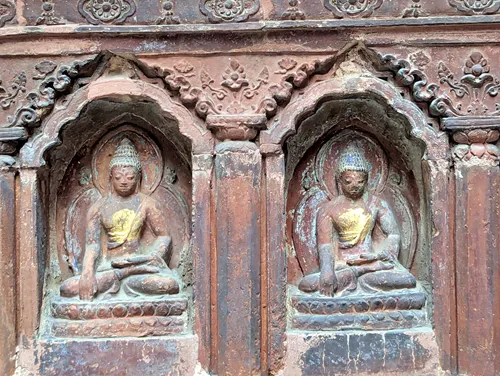
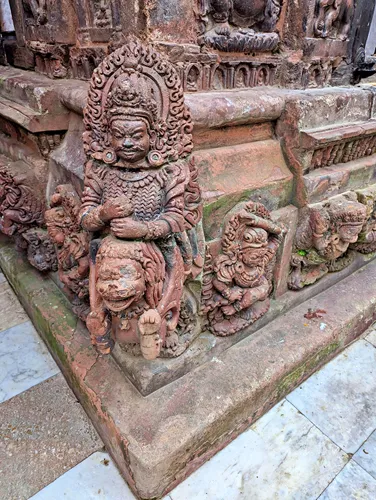
Here at Backpack and Snorkel Travel Guides, we typically promote self-guided walking tours.
But we realize that not everybody likes to walk by themselves in a foreign city. So, just in case that you rather go with ab guide: NO PROBLEM! Please see the Viator tours below.
free GuruWalk tours
paid Viator tours
Origin of the name Mahabouddha Temple
The name Mahabouddha translates to ‘Great Buddha’, derived from the Sanskrit words ‘Maha’ (great) and ‘Buddha’. The temple’s name reflects both its architectural ambition and spiritual purpose. Its most distinctive feature are the thousands of terracotta Buddha statues that cover its entire surface, giving rise to its nickname.
Historical and Cultural Significance of Mahabouddha Temple
Construction of the Mahabouddha Temple began around 1564 with royal permission from King Mahendra Malla, led by a devoted priest named Abhaya Raj Shakya. He was inspired by a pilgrimage to Bodh Gaya in India, which is the sacred site where Siddhartha Gautama attained enlightenment.
Moved by the experience, he envisioned building a temple in Nepal that would reflect the design and spiritual significance of the Mahabodhi Temple in Bodh Gaya.
Unfortunately, Abhaya Raj passed away after completing only the foundation. Determined to honor their father's vision, each of his five sons took turns continuing the project. However, all but the youngest died before the temple could be finished. Just as the fifth son was about to abandon the effort, a goddess is said to have appeared to him in a vision, encouraging him to persevere. Inspired by this divine encounter, he completed the temple in 1610.
The original structure was damaged several times by earthquakes over the centuries, and the temple you see today is the result of a rebuilt after the 1934 Nepal–India earthquake.
While not as massive as some other temples, it stands out with its stunning brickwork and thousands of Buddha statues, which create a striking visual experience.
Visitors can explore the beautiful courtyard, admire the temple’s fine craftsmanship, and maybe even observe monks in prayer.
You may hear a number of 9,000 buddha statues. This is incorrect, as 9,000 refers likely to the numbers of terracotta bricks that the temple is made of. Many of these bricks contain buddha statues, but the number of Buddha statues is likely much lower than 9,000.
Etiquette for visiting Mahabouddha Temple
Please respect the sacredness of the site, and remove your shoes before entering the courtyard, and avoid taking photos of worshippers.
Back to your self-guided tour
Author: Rudy at Backpack and Snorkel
Bio: Owner of Backpack and Snorkel Travel Guides. We create in-depth guides to help you plan unforgettable vacations around the world.
Other popular Purple Travel Guides you may be interested in:
Like this Backpack and Snorkel Purple Travel Guide? Pin these for later:
